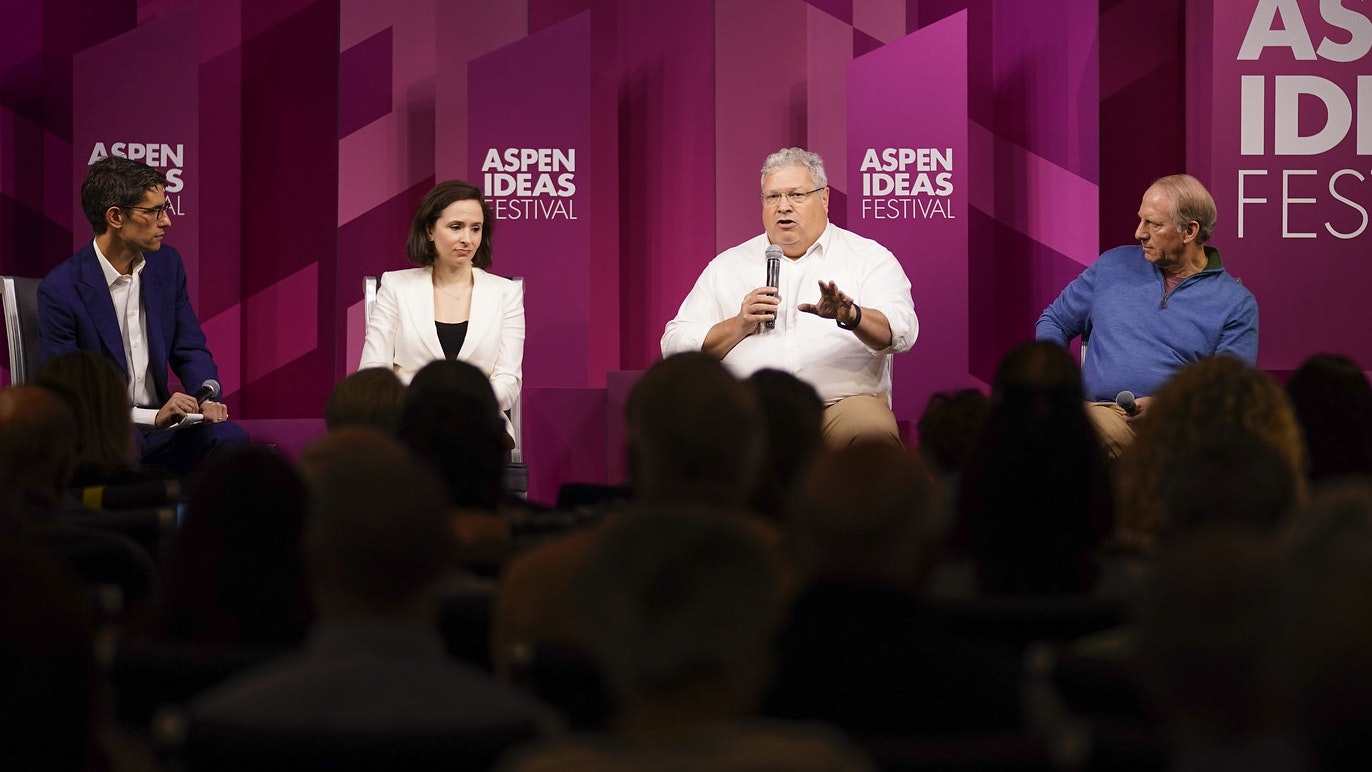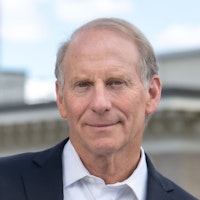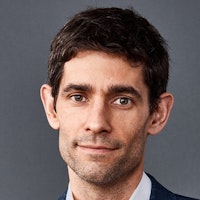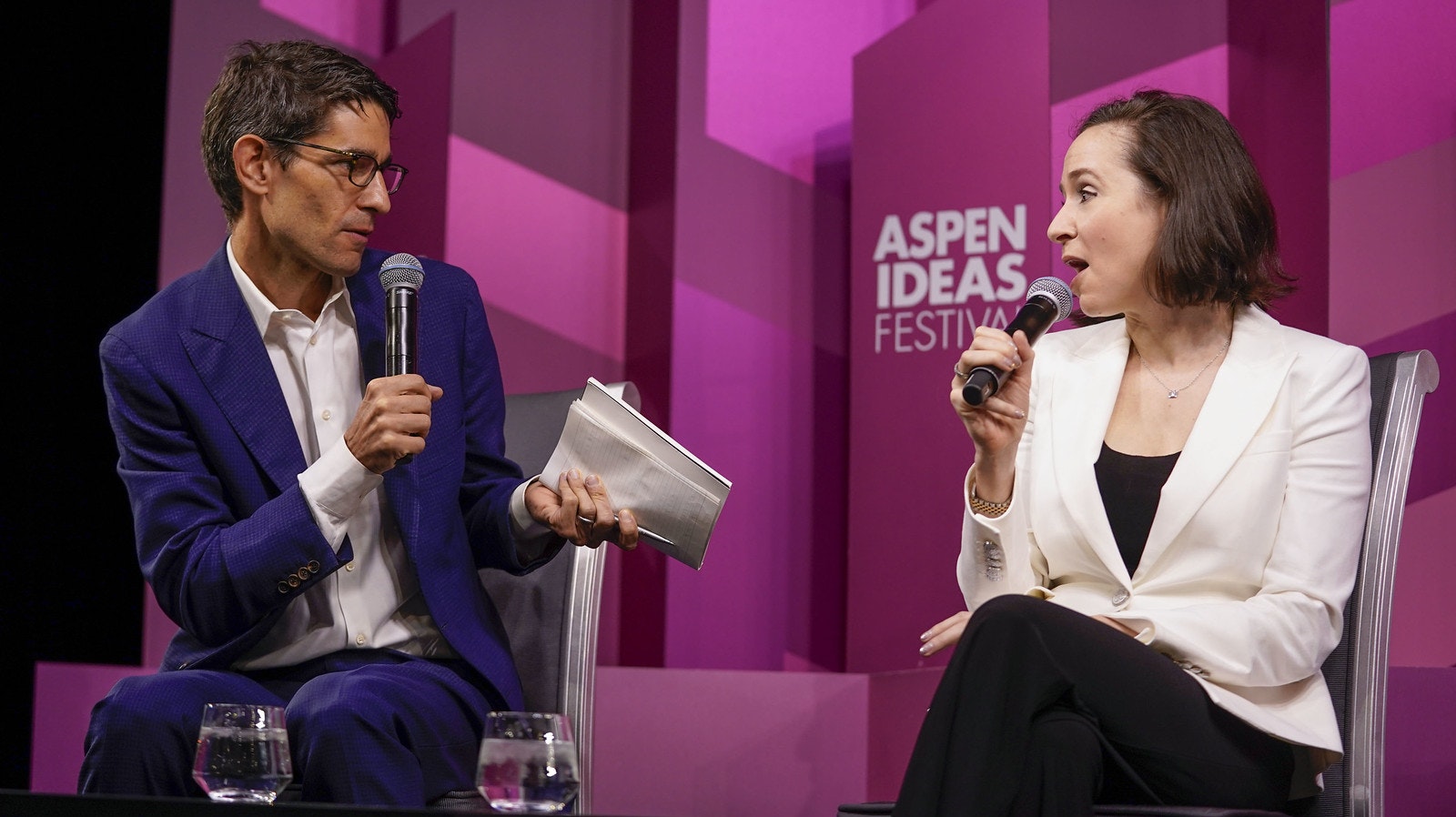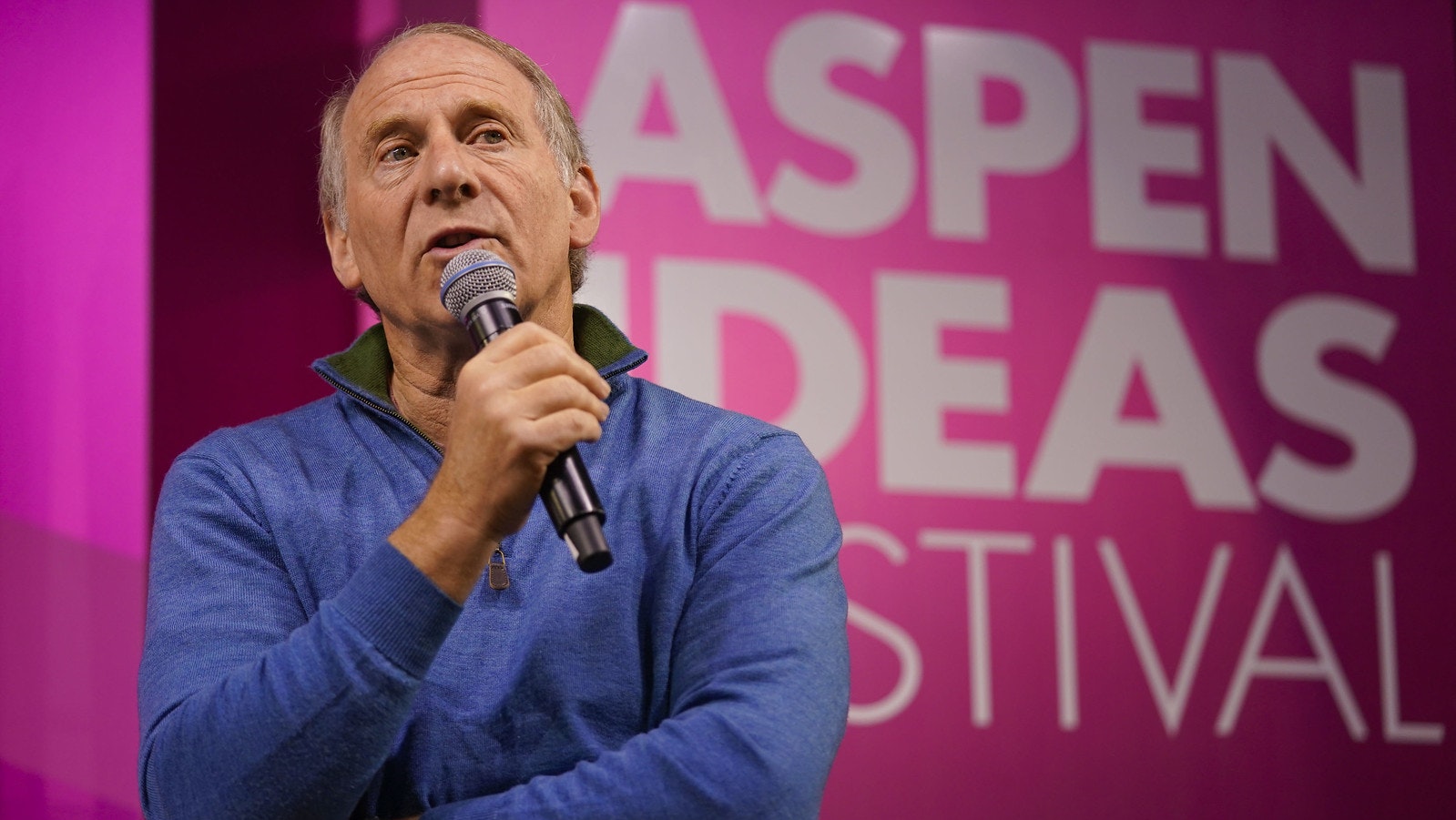
The Return of Rivalry
Setup
After decades with no significant geopolitical rivals, the United States now faces the emergence of China as a major adversary. How will this change the landscape of the emerging world order? What new forms of geopolitical conflict will arise, and what new forms of cooperation are necessary?
- 2019 Festival
- World
- USA
- Economy
- Full transcript
Frenemies? US-China rollercoaster
Moderator Nicholas Thompson, editor in chief of WIRED, begins the conversation by asking the panelists to weigh in on the historical evolution of the United States’ relationship with China. Richard Haass, president of the Council on Foreign Relations, points to the end of the Cold War as the time when the two countries became more economically intertwined. “What’s happened over the last few years,” he says, “is this is a relationship that lost its foundation because the economics have become as much a source of friction as they have a foundation.”
Big IdeaAmerican policy makers need to devise a strategy for a new international order that has a stronger China as part of it — thinking about where we can accept Chinese power and where it is reasonable for China to make additions to the international order.Mira Rapp-Hooper
There was a strong hope, says Mira Rapp-Hooper, senior fellow at the Council on Foreign Relations, that as China became increasingly ensconced in the international order, the rules and norms that govern international politics would change China more than China would change them. “From the perspective of many foreign policy thought leaders, that set of assumptions has been dashed, in particular by the rise of Xi Jinping,” she explains.
So how do we prevent conflict from escalating between the two countries? Robert Kagan, senior fellow at Brookings, believes that China doesn’t want to have a war with the United States. He suggests a strategy of military containment along with economic engagement, or in other words, “deter them from throwing their weight around militarily and saying to them, in effect, we want you to get rich.”
The technology race
“One of the things that worries me the most,” says Nicholas Thompson, “is that the technology sphere splits in two and you end up with a technology cold war, where the entire technology stack of certain countries can either be built on Chinese technology or Western technology.” Watch the panel discuss the forces at work in the technology race and the Trump administration’s stance on tech policy:
It’s crucial that we work with our allies in Asia to create a mutual strategy for tackling Chinese technology, says Mira Rapp-Hooper, rather than alienating them through tariffs and competition with Huawei. If we don’t, she emphasizes, “we’re putting our allies in a position that they fundamentally don’t want to occupy. And that is a world where they’re asked to choose between the United States and China.”
Reversing democratic decline
What can we do to counter authoritarianism and reverse the trend of democratic decline? First off, says Robert Kagan, we can stop supporting dictatorships. He also emphasizes the importance of maintaining the coherence of the liberal world order. “If we are coherent,” Kagan says, “these rival powers pose much less of a threat.”
-
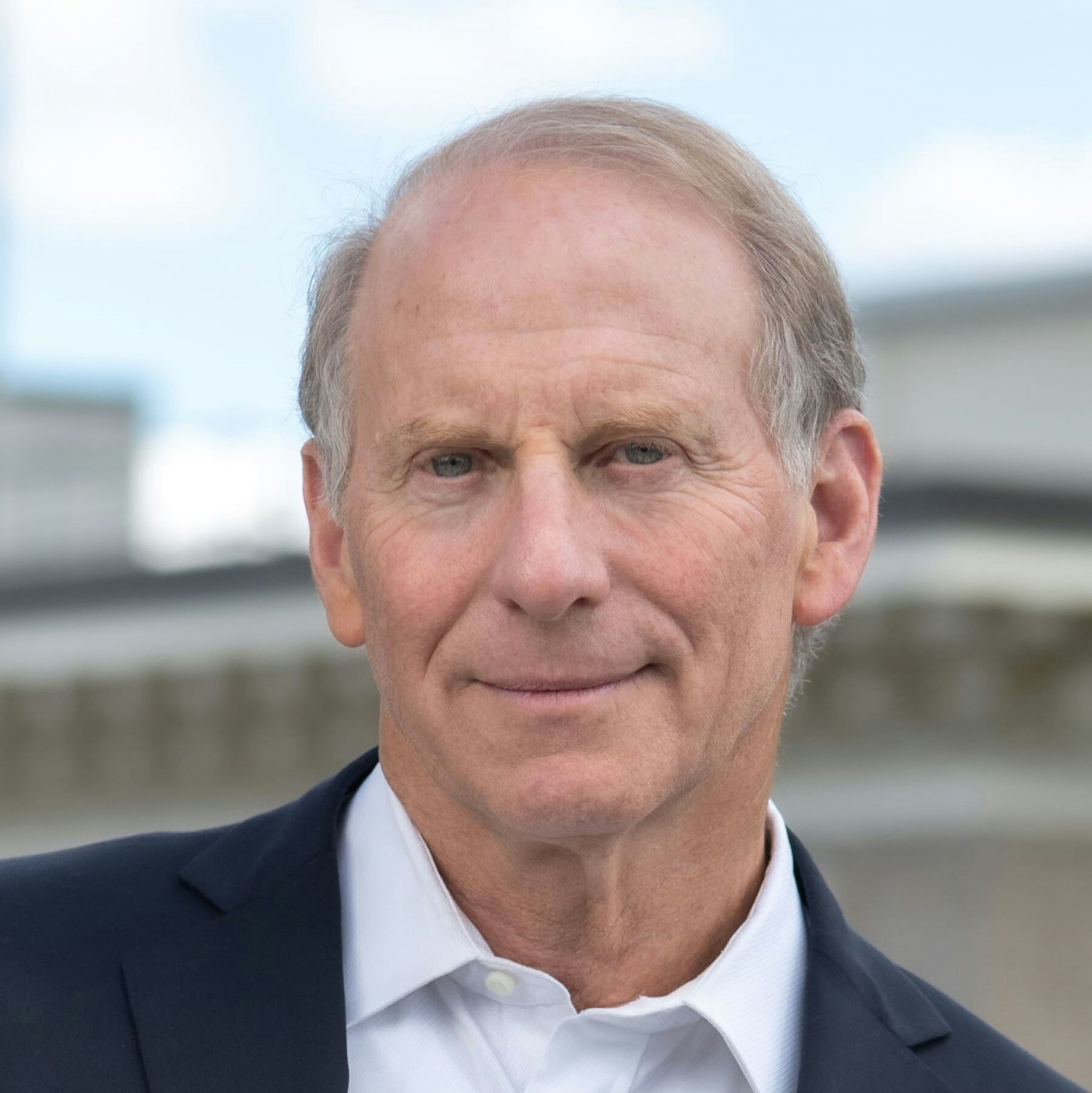
Richard Haass: The American political and economic model has lost a lot of altitude...So one of the reasons I think that the balance has shifted towards authoritarians is we’re not as attractive an alternative; more people [are] looking at the authoritarian model saying it looks more stable, more capable, economically performing better …We have essentially unilaterally disarmed in the competition for ideas, so our model isn’t as attractive and we’re not promoting it.
China, Trump, and the 2020 election
Presidential elections are increasingly a global affair. A member of the audience asks the panel to consider the road to 2020 from China’s point of view. Does China want a two-term Trump presidency? Are there other attractive candidates from China’s perspective? Watch the panel tackle these questions and reflect on the 2016 election:
Learn More
Additional Information
Resources
A World in Disarray: American Foreign Policy and the Crisis of the Old Order
Council on Foreign Relations
The Jungle Grows Back: America and Our Imperiled World
Explore More
World

Global conflicts and health crises have put into stark relief deeply-ingrained gender roles in society. Yet the past years have also seen record-high numbers of women running...


The world seems to be moving and evolving faster than ever before, and democratic ideals are under threat in many countries around the globe. New York Times columnist and jour...

How is constitutional law being harnessed to address climate change? Ahead of Aspen Ideas: Climate, we caught up with Andrea Rodgers, Senior Attorney at Our Children's Trust,...


History has the power to teach us what to do in the present, but do we actually make good use of that tool? Many events in our recent past might suggest otherwise. American hi...

Of course, Black history shouldn’t just be a month-long nod on our yearly calendar — it is inextricable from American history and fundamental to the very soul of our nation an...

The unflinching humanity and morality that Martin Luther King, Jr. embodied is part of what makes his legacy so lasting. In addition to his preeminent civil rights work, he sp...


The stories we hear about migrants trying to escape difficult circumstances tend to focus on hardship, conflict, statistics and policy. We rarely get a deep look at any of the...


Most Americans today would agree that the dream of supporting a family and living a good life on one full time salary is not available to vast numbers of people. Wages have no...


Climate change catastrophes are already happening with increasing regularity, and it’s clear we need to take action. The Biden administration has set a target of zero carbon e...

The quest for profits, commitments to social impact, and consumer preference are driving unprecedented change in healthcare as investors pour in money, start-ups and big tech...


Even when the economy is booming and unemployment is low, millions of Americans still face economic hardship. And in the last few years the United States has dealt with supply...

It's been a big year for Patagonia, as it celebrated a 50th anniversary and legally restructured to commit all profits to environmental causes. What can be learned from the co...


Almost everyone agrees that immigration policy in the United States is lacking, but despite decades of debate, Congress has not been able to pass comprehensive reform on the i...

How do we sustain growth in a volatile and rapidly changing economy? What’s the best way to foster productivity and fulfillment at work? How will A.I. change the job market? C...

The international community faces unprecedented threats. What will geopolitical arrangements look like going forward? Is it time to rethink America’s relationship with China?...

Americans seem more culturally and ideologically divided than at any point in most of our lifetimes, with no prospect of bridging those divides any time soon. The only thing w...

It’s a fact: In communities where voting rates are higher, health outcomes are better. That’s why ER physician Alister Martin, the Founder of Vot-ER and CEO of A Healthier Dem...


The automotive industry is going through a time of profound transformation, facing internal and external pressure to electrify America’s fleet of personal vehicles. General Mo...


Populations around the world have been electing more and more autocratic leaders in the past couple decades, via supposedly free, fair, and democratic elections. The freedom o...


Merely defining gun violence is difficult, and coming to agreement on what to do about it often seems near-impossible in the United States. But people on all sides of the deba...


